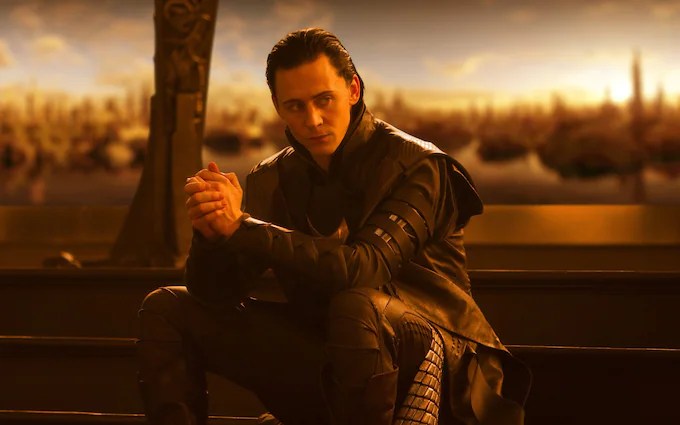Family holidays can be a joy or an ordeal depending on the family. In British director Joanna Hogg’s second theatrical feature, Archipelago (2010), the Leighton family start their holiday on an upbeat note. Patricia (Kate Fahy) and her daughter Cynthia (Lydia Leonard) have rented their favorite vacation home from past visits on the island of Tresco (which is part of the Isles of Scilly archipelago) as a farewell gathering for Cynthia’s brother Edward (Tom Hiddleston). He is taking a break from his job in the city to do volunteer work in Africa and his mother and sister want to give him a memorable send-off. William, Edward’s father, is on his way to join them and family friend and artist Christopher (Christopher Baker) is staying nearby and will be on hand to mentor Patricia on her painting and sketching endeavors and join them for outings. What could possibly go wrong for such a privileged family in idyllic surroundings?

Good intentions and auspicious beginnings soon give way to undercurrents of resentment, jealousy, unhappiness and confusion but Archipelago is not some formulaic melodrama where family secrets are revealed and everything builds to a shattering dramatic climax. Hogg isn’t interested in that kind of film and opts instead for a more intimate and realistic look at a family that is simply inept at communicating their true feelings or talking about the real issues that divide them. They prefer to ignore their problems while making pleasant chitchat and behaving like most vacationers – going on picnics, taking bicycle rides, hiking and having lovely meals, which are prepared by their temporary live-in cook for hire and servant, Rose (Amy Lloyd). Yet, despite the extraordinarily lush setting of Tresco and their life of leisure, the Leighton family can’t escape the problems they have brought with them from the city.
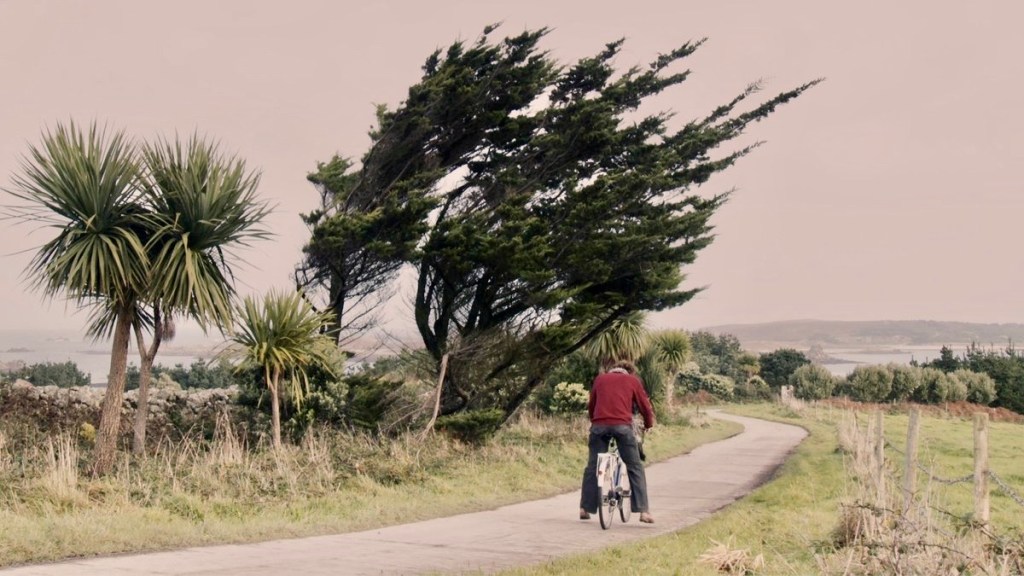
The main trio of Edward, Cynthia and Patricia all have their private issues, some of which are revealed. Edward is experiencing anxiety over his future and is hoping to find clarity with a change of scene and responsibilities in a place far away from his roots. Cynthia is a bit of a control freak with anger issues stemming from what? A longtime sibling rivalry with her brother or some deeply personal disappointment? Patricia, on the other hand, tries to be the peacekeeper between her children but seems distracted by something. Is her marriage in trouble or perhaps she is questioning her self-worth? Maybe this explains her attempts at edification through artistic pursuits.
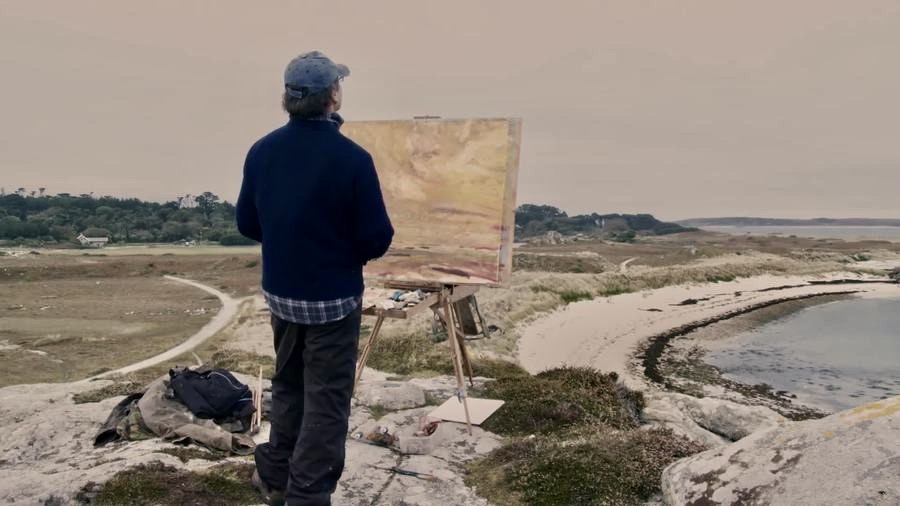
Don’t get the idea, however, that this is a brooding downer in the tradition of a Eugene O’Neill play. There is often a mischievous sense of humor at play in depicting the communication breakdown among this bourgeois clan. Some of the conversations are so cringe-inducing that you simply have to laugh and may even remind you of awkward dinner parties or unpleasant social events you’ve experienced in your own life.

Elements of satire also emerge in Edward’s attempts to ignore established class boundaries between the family and the hired help. He may be truly empathetic and sensitive to the feelings of others but his attempts to include Rose in family activities only results in embarrassment for everyone, especially Rose. A perfect example is when Edward insists on cleaning up after a meal and doing the dishes while Rose, in confusion, asks “So what do I do now?”
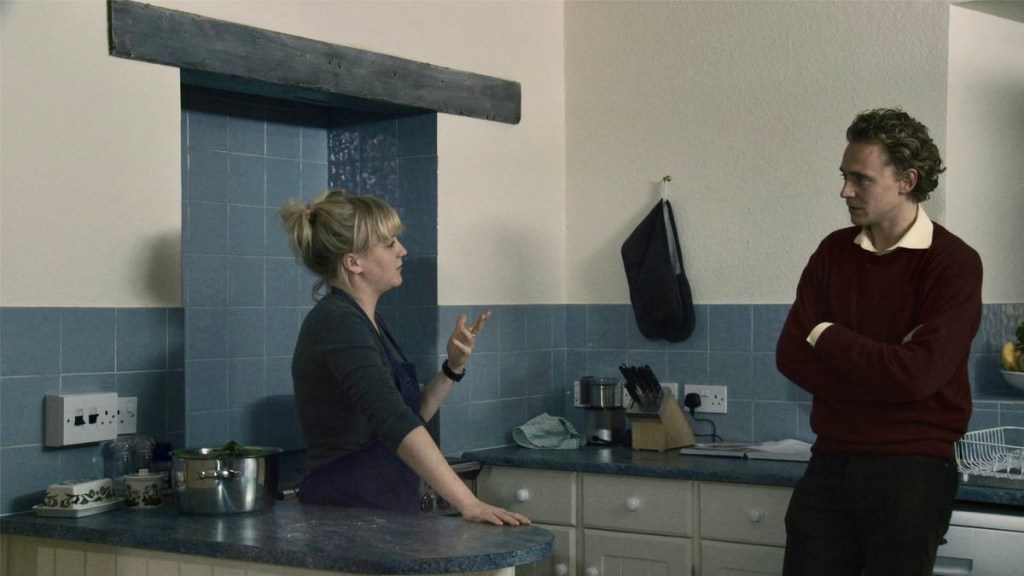
Rose is also included in a family lunch date at a posh restaurant that ends in disaster due to Cynthia making a big deal about an undercooked piece of meat. Patricia had originally lodged the complaint about her dish but then decides it is easier to let the whole manner go, admitting, “it’s actually quite good.” But Cynthia is on a roll and first confronts the server and then demands to speak to the chef because serving undercooked meat is “quite dangerous.” Rose, of course, is visibly uncomfortable throughout the whole ordeal while Christopher and Edward observe everything with little to no comment until Edward bolts from the scene in exasperation. The sequence is both excruciating and hilarious at the same time.

The performances in Archipelago are simply superb and I was surprised to learn that both Christopher and Rose are played by non-actors. Hogg likes to mix professional actors and amateurs and the result is something much closer to docudrama. Even more surprising is the fact that Christopher is an artist and teacher in real life and Rose is a professional cook so they are actually playing versions of themselves but they mesh so well with established actors like Tom Hiddleston, Kate Fahy and Lydia Leonard that it results in something that feels spontaneous and natural.
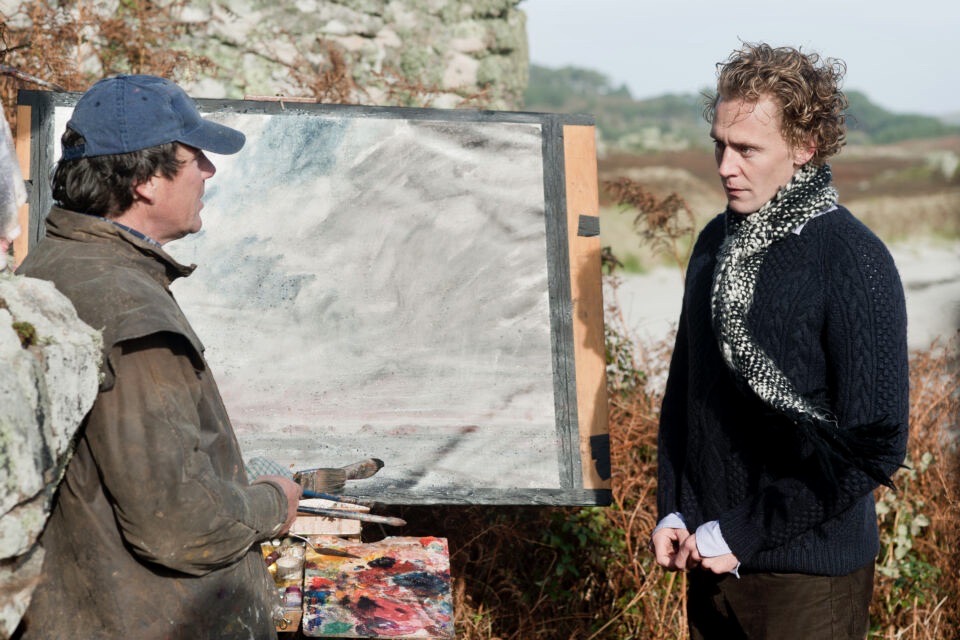
There are also moments of dramatic intensity as well as poignancy in Hogg’s narrative which are achieved in non-traditional ways. For example, the director will often frame a scene so that the person speaking the dialogue is off screen while we are watching the reactions of those who are listening to the talker. In a key scene, Patricia, after anxiously awaiting the arrival of her husband, learns that he won’t be able to make it after all via his phone call. She explodes in a fury: “I am doing my best here to make sure Edward has a wonderful trip and a wonderful send off….Edward will never forgive you…you have earned all our hatred. I HATE YOU.” We watch all of this play out on the faces of the listeners as they eat their meal in a stunned silence.

We also never hear William’s voice on the phone each time he calls, only Patricia’s replies to him. Despite the fact that William never makes an appearance in the film, his absence creates an ongoing tension throughout Archipelago and we get little hints and clues about his relationship with his wife, son and daughter as well. By avoiding a backstory or narrative exposition to fill in the missing pieces of a puzzle, Hogg creates something much more intriguing and mysterious which requires the viewer to come to their own conclusions based on the fragments they are given. Not all moviegoers like this approach and Hogg’s technique has its detractors as well as its admirers. But sometimes a moviegoer can have a richer viewing experience by meeting the director halfway.
Peter Bradshaw in his review of Archipelago for The Guardian eloquently summed up Hogg’s unique directorial aesthetic, noting she “works with a series of static “tableau” camera positions. There is no musical soundtrack, just the ambient sound of birdsong or distant aeroplane buzz, only really apparent when it cuts out into silence for the next scene. Closeups are rare, and when the camera does move – just once in the entire film – it is to reflect something calamitous. Perhaps what emerges primarily is Hogg’s sense of light: her screen is alternately washed with cold, clear daylight, then suddenly plunged into a dusky gloom for another outdoor scene and into a different, disorientating kind of twilight for an interior sequence. Hogg and her director of photography, Ed Rutherford, appear to rely simply on the available light from the window, but will consciously direct the camera towards this light source so that the human figures are in semi-darkness or silhouette: they appear masked, or blinded, feeling their way.”
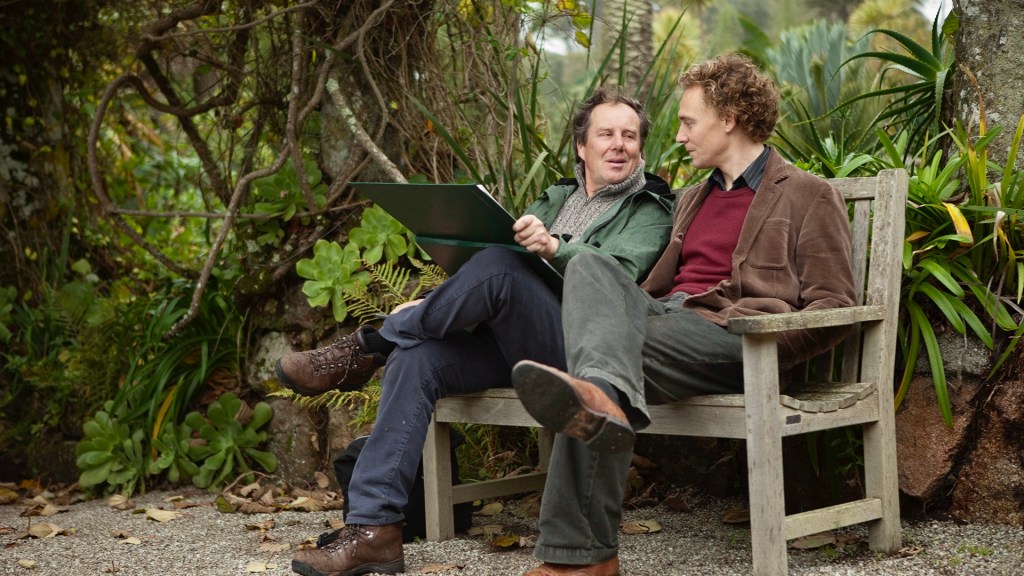
When Archipelago was first released in the U.K., it clearly divided critics and viewers. Some praised it excessively while others complained that the Leighton family were unworthy of the filmmaker’s focus because they were affluent, spoiled and unsympathetic. Paul Griffiths of the U.K. film review site, Eye for Film, acknowledged this conflict, stating, “The film deserves to stand on its own merits, but being released at a time when ‘austerity measures’ are biting and The Middle Class apparently endures squeezes from all sides, could prove significant for its initial reception. It remains to be seen whether watching Ed’s lot fret ‘n’ fray on holiday will prove a cathartic release or an infuriating picture of indulgence.”
Archipelago was Joanna Hogg’s second theatrical feature and part of a loose trilogy that includes Unrelated (2007), her first feature film, and Exhibition (2013), her third movie, which examines the relationship of two well-healed “bohemian” artists in contemporary London. The director has gone on to carve out a unique space for herself in independent British cinema by focusing on the inner lives and conflicts of a certain class of British denizen. Her most recent film is The Eternal Daughter (2022) starring Tilda Swinton in a dual role as a daughter and her mother on vacation at a country estate that used to be their home.
I have to admit that it took me a while to warm to Hogg’s directorial style. The first film of hers I saw – Exhibition – was too austere and minimalistic for my tastes plus the two main characters were so self-absorbed in their hermetically sealed bubble of a house that I questioned what I was missing based on the rave reviews. Then I sampled The Souvenir (2019) starring Tilda Swinton’s daughter, Honor Swinton Byrne, as Julie, a film school student who becomes enamored with a charismatic man named Anthony (Tom Burke). It had an intentionally banal, claustrophobic visual look reflecting the living quarters and lifestyle of a graduate level student along with a slow, methodical pace but Byrne was so convincing as a devious and ultimately self-destructive poseur that I lost all sympathy for Julie’s plight which was the point of the movie.
You’d think I’d give up after The Souvenir but I sought out the sequel, The Souvenir: Part II (2021) after more ecstatic reviews and found it totally engaging. Julia’s character finally comes into focus in the sequel and moves beyond naviete and insecurity to become someone who is starting to realize and mold personal experience into an art form. Could this be a semi-disguised version of Hogg’s own life?
Archipelago was the true turning point for me and after being equally impressed by Unrelated and The Eternal Daughter I want to revisit all of her work with a fresh eye.
One last thing to note is that Tom Hiddleston made his feature film debut in Hogg’s first movie, Unrelated, after appearing in several British TV shows. He has since gone on to become one of the most in-demand actors of his generation mixing big-budget blockbusters like Thor (2011) and The Avengers (2012) and its two sequels with more specialized indie fare like Jim Jarmusch’s Only Lovers Left Alive (2013) and Ben Wheatley’s dystopian sci-fi drama High-Rise (2015).

In an interview about the film, Hiddleston revealed that “Archipelago was about improvising and the character I was playing was intensely doubtful, vulnerable, uncertain and philosophically, just with the weight of the world on his shoulders. Joanna said ‘I just want you to pull out the most vulnerable part of yourself and that’s what I want to shoot. I’m not interested in your strength.” It’s a mercurial yet subtle early performance from this rising star and I hope he continues to follow his instincts in picking projects for fun and profit but also films that challenge him as an actor.
Archipelago was released on DVD in the U.S. by Kino Lorber in November 2014. If you own an all-region DVD player, you might prefer to own the DVD release from Artificial Eye in May 2011, which includes Joanna Hogg’s informative audio commentary on the making of the film.
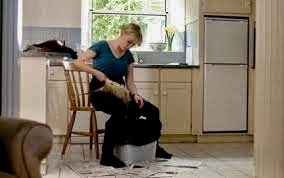
Other links of interest:
Joanna Hogg
https://www.filmcomment.com/article/joanna-hogg-exhibition/
https://www.criterion.com/current/posts/6357-joanna-hogg-revisits-her-past-selves







